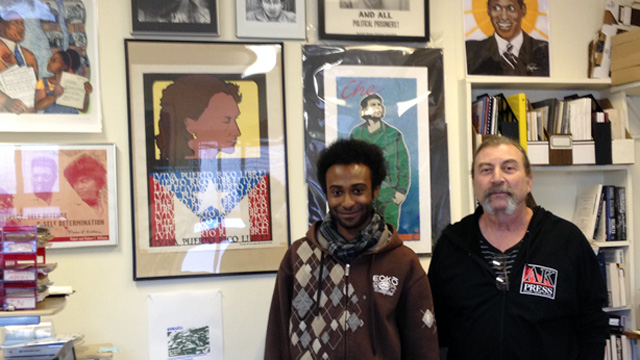http://www.kqed.org/.stream/anon/radio/tcrmag/2014/07/2014-07-04d-tcrmag.mp3
It’s a place where moments in history are captured. At The Freedom Archives, the images and words of social activists are collected from vinyl, tape and film, and then restored, digitized and archived. It connects political events of the past with information seekers in the present.
“We’re fed up with all the exploitation,” says Cesar Chavez in a speech before hundreds of people about a historic protest, which caused some consumers to stop buying grapes and made some growers offer fair wages to migrant workers. “We’re fed up with being the worst-paid workers in America. We’re fed up with being exploited. We want a new life. We want a union. We wanted to do something for ourselves and our families, and they went on strike.”
This audio clip of Chavez — and many others like it — can be found in the modest offices of The Freedom Archives in San Francisco's Mission District.
“One of the things we find tremendously rewarding is when the material in the archive can be repurposed,” says archives director Claude Marks. “We don’t feel an ownership of it as much as a responsibility to protect and restore this kind of material.”

